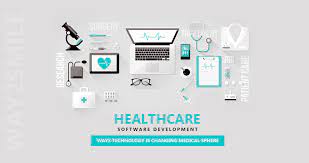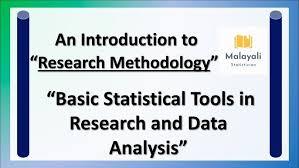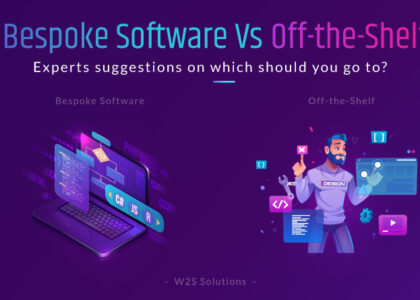The Impact of Healthcare Software Development
Healthcare software development plays a crucial role in revolutionising the way medical professionals deliver care and manage patient information. With advancements in technology, the healthcare industry is undergoing a significant transformation, and software solutions are at the forefront of this change.
Enhancing Patient Care
One of the primary benefits of healthcare software development is its ability to enhance patient care. Electronic Health Records (EHR) systems allow healthcare providers to access patient information quickly and efficiently, leading to more accurate diagnoses and personalised treatment plans. Telemedicine platforms enable remote consultations, improving access to healthcare services for patients in remote areas.
Streamlining Administrative Tasks
Healthcare software solutions streamline administrative tasks such as appointment scheduling, billing, and inventory management. This automation not only reduces the burden on administrative staff but also minimises errors and improves overall efficiency within healthcare facilities.
Data Analytics for Informed Decision-Making
With the vast amount of data generated in healthcare settings, software development has enabled powerful data analytics tools that can provide valuable insights for informed decision-making. By analysing trends and patterns in patient data, healthcare providers can improve outcomes, reduce costs, and enhance overall quality of care.
Cybersecurity in Healthcare Software
As digital systems become more prevalent in healthcare, cybersecurity is a top priority in software development. Protecting patient data from cyber threats is essential to maintaining trust and confidentiality within the healthcare industry. Robust security measures are integrated into healthcare software solutions to safeguard sensitive information.
The Future of Healthcare Software Development
The future of healthcare software development holds immense potential for further innovation. Artificial intelligence (AI) and machine learning are being increasingly utilised to improve diagnostic accuracy and automate repetitive tasks. Mobile health applications continue to empower patients to take control of their health through monitoring tools and educational resources.
In conclusion, healthcare software development is driving positive change within the industry by improving patient care, streamlining processes, harnessing data analytics, ensuring cybersecurity, and paving the way for future innovations. As technology continues to advance, the impact of software solutions on healthcare will only grow stronger, ultimately benefiting patients and providers alike.
Understanding Healthcare Software Development: Key Questions and Insights
- What is the agile approach to health software development?
- What is a medical software company?
- What is the healthcare software development life cycle?
- What is the SDLC in healthcare?
- What computer software is used in healthcare?
What is the agile approach to health software development?
The agile approach to health software development is a methodology that prioritises flexibility, collaboration, and continuous improvement throughout the development process. In the context of healthcare software, adopting an agile approach involves breaking down the development cycle into iterative stages or sprints, allowing for frequent feedback and adjustments. This iterative process enables healthcare software developers to respond quickly to changing requirements, incorporate stakeholder input, and deliver incremental updates that meet evolving needs effectively. By embracing the agile methodology, health software development teams can enhance efficiency, responsiveness, and overall quality in delivering solutions that address the dynamic challenges of the healthcare industry.
What is a medical software company?
A medical software company is an organisation dedicated to developing software solutions specifically tailored for the healthcare industry. These companies focus on creating applications and systems that help healthcare providers manage patient data, streamline administrative tasks, improve clinical workflows, and enhance the overall delivery of care. Medical software companies often collaborate closely with healthcare professionals to understand their unique needs and challenges, ensuring that the software they develop meets industry regulations, standards, and best practices. By combining expertise in both technology and healthcare, these companies play a vital role in driving innovation and efficiency within the healthcare sector.
What is the healthcare software development life cycle?
The healthcare software development life cycle encompasses the systematic process of creating, implementing, and maintaining software solutions tailored to the unique needs of the healthcare industry. This structured approach typically includes stages such as requirements gathering, design, development, testing, deployment, and ongoing maintenance. Each phase of the life cycle is crucial in ensuring that the software meets regulatory standards, enhances patient care delivery, and integrates seamlessly with existing healthcare systems. By following a well-defined development life cycle, healthcare software developers can deliver high-quality solutions that address the complex challenges faced by healthcare providers while prioritising patient safety and data security.
What is the SDLC in healthcare?
The Software Development Life Cycle (SDLC) in healthcare refers to the structured process followed in developing and implementing software solutions specifically tailored for the healthcare industry. This comprehensive approach encompasses various stages, including planning, design, development, testing, deployment, and maintenance of healthcare software applications. The SDLC framework ensures that healthcare software meets industry standards, regulatory requirements, and user needs while prioritising patient safety, data security, and system reliability throughout the development process. By adhering to the SDLC methodology, healthcare organisations can effectively manage software projects, mitigate risks, and deliver high-quality solutions that enhance patient care and operational efficiency within healthcare settings.
What computer software is used in healthcare?
Various computer software applications are used in healthcare to streamline operations, enhance patient care, and manage medical information efficiently. Electronic Health Records (EHR) systems are widely adopted to store and retrieve patient data securely, enabling healthcare providers to access comprehensive information for informed decision-making. Practice management software helps healthcare facilities manage administrative tasks such as scheduling appointments, billing, and inventory management. Telemedicine platforms facilitate remote consultations and telehealth services, expanding access to healthcare for patients in diverse locations. Additionally, data analytics software is utilised to analyse large datasets for insights that can improve clinical outcomes and operational efficiency within healthcare organisations. The diverse range of computer software used in healthcare plays a pivotal role in modernising the industry and delivering quality care to patients.






